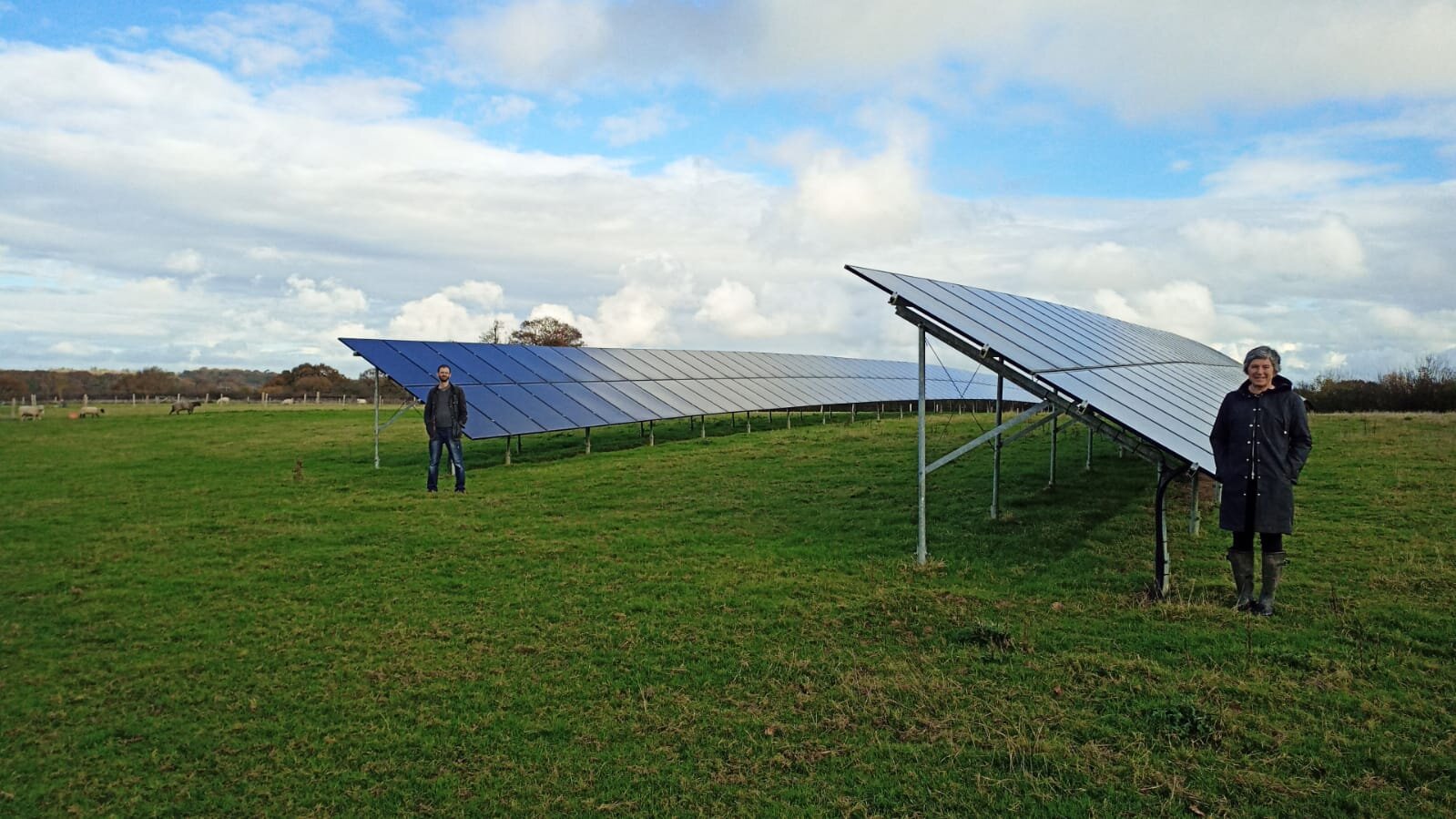A Sussex village could hold one of the keys to helping the UK reach net zero carbon emissions by 2050. Residents in Barcombe, East Sussex, are helping their local electricity network operator to create a model roadmap for ‘greener’ home heating that will in time show the way for other communities to follow suit. Fossil-fuel based heating accounts for around a third of UK carbon emissions, making decarbonising heat a vital part of the UK’s legally-binding commitment to reaching net zero carbon emissions by 2050. Across the UK, there are four million properties like those in Barcombe which are ‘off-gas grid’, meaning residents burn fossil fuels for cooking and heating. This produces significant carbon emissions and is often expensive.
Over 600 households are involved in the ‘CommuniHeat’ project, run by network operator UK Power Networks. Throughout the two-year project, engineers will work with community groups and local partners to research, gather data and compare approaches for reducing the village’s carbon emissions from household heating. CommuniHeat aims to best understand how Barcombe and similar communities could switch to low-carbon heating using electricity. Engineers from UK Power Networks will work with local community group Ovesco to host digital community events and engagement to understand residents’ needs and opinions. The project will also install energy meters in the village and consultancy Buro Happold will create new computer models to forecast the impacts of electrifying heat. In doing so, the project partners hope to create a sustainable, replicable model for Barcombe that could be applied in other parts of the country. Data from the newly-installed meters will offer new insights into how residents currently use their energy. With this new information, UK Power Networks can run advanced simulations for different approaches to installing low carbon electrical heating. The simulations will investigate the costs, efficiency, and electricity network impact of multiple different approaches, including shared district heating, medium sized heat pumps serving a few properties, or personal electrical heat pumps installed at each property. The project will then look at potential community finance models for making the switch and analyse how other smart technology like electric vehicles and solar power could play a role. With a clear plan in place, residents will understand what a zero carbon future could look like.
Maria Caulfield MP for Lewes Constituency, said: “Decarbonising heating systems is crucial to tackling the UK’s greenhouse gas emissions and I’m delighted that Barcombe is leading the way to demonstrate how to make the decarbonisation of heat a reality. It is fantastic to see UK Power Networks passionately collaborating with a range of stakeholders, to ensure they support rural constituents like mine to decarbonise as quickly and efficiently as possible.”
Ian Cameron, head of customer services and innovation, said: “This project is all about facilitating the reduction of carbon emissions through collaboration. We know where emissions come from, and we know the end goal. We’re delighted to be working with this forward-thinking community to actively make net zero heating a reality for all.”
Ollie Pendered, local resident and Chief Executive of Community Energy South, “We are incredibly proud to be working with experts from UK Power Networks, Buro Happold and local pioneering Community Energy Group Ovesco to make a low carbon future a reality for rural villages. CommuniHeat has the potential to take rural communities to net zero fast, create a new market for local installers, create future jobs while benefiting residents. Coupled with the impact of Covid-19 and the need to tackle climate change, this project has a real chance of making a positive impact.”
Chris Rowland, Director of Ovesco, said: “We established Ovesco in 2007 working with Lewes District Council to support local people across the district on the benefits of low carbon energy. Communiheat will mean that we can support local people and establish a locally employed team to support the transition to low carbon future, making energy work for us and save money on household bills.”
Phil Proctor, Associate Director Energy of Buro Happold, said: “Decarbonisation of heat is crucial if we are going to deliver against our carbon targets, but it’s not without its challenges. Buro Happold is therefore very excited to work with UK Power Networks, Ovesco and Community Energy South to ‘write the book’ on how communities can work together with the local network utility to develop the best solutions incorporating local area planning and community energy.
For more information visit www.CommuniHeat.org or contact cally.southern@communityenergysouth.org

